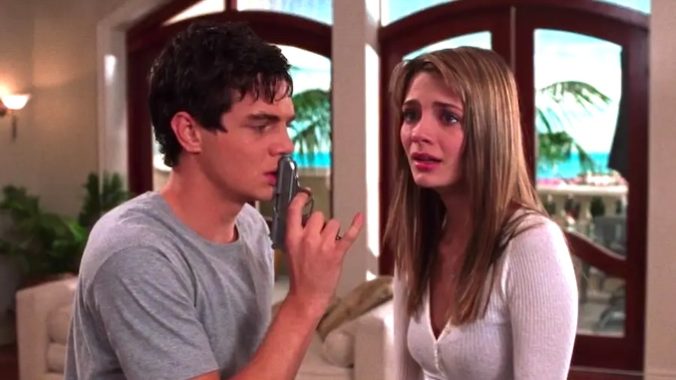It Still Stings: 20 Years Later, The O.C.’s Infamous Oliver Storyline Remains Deeply Frustrating
Photo Courtesy of FOX
Editor’s Note: TV moves on, but we haven’t. In our feature series It Still Stings, we relive emotional TV moments that we just can’t get over. You know the ones, where months, years, or even decades later, it still provokes a reaction? We’re here for you. We rant because we love. Or, once loved. And obviously, when discussing finales in particular, there will be spoilers:

Despite being off the air since 2007, The O.C. is still widely regarded today as one of the most beloved teen dramas in history. Premiering on FOX in 2003, the show centered on outsider teenager Ryan Atwood (Ben McKenzie), who was taken in by benevolent public defender Sandy Cohen (Peter Gallagher) and his wife Kirsten (Kelly Rowan) after getting busted for stealing a car. Over the course of the series, Ryan gradually adjusted to living in wealthy Newport, formed a tight-knit friendship with his adoptive brother Seth (Adam Brody), and struck up a star-crossed romance with popular, but troubled Marissa Cooper (Mischa Barton).
Like many teen dramas, The O.C. hit some bumps in the road later in its run. The third season garnered poor reception from critics and viewers alike, and the final fourth season remains extremely divisive amongst fans to this day. Yet, the show’s first season still largely holds up, with many considering it to be near-perfect. However, there’s one glaring issue with Season 1 that can’t be overlooked: the Oliver storyline.
Few television characters universally evoke such visceral feelings of contempt like Oliver Trask (Taylor Handley). He was first introduced just over 20 years ago in Season 1’s thirteenth episode, “The Best Chrismukkah Ever,” as a fellow patient whom Marissa befriended in therapy. Oliver quickly became obsessed with her, taking extreme measures to manipulate and isolate her in hopes that she would reciprocate his romantic feelings. Although Ryan repeatedly expressed concerns that something was “off” about the situation, virtually all of the characters dismissed his worries as irrational jealousy—that is, until Oliver literally trapped Marissa in a hotel room with a gun and threatened to shoot himself if she called for help. Many viewers despise this storyline because it was aggravating to watch Ryan not be believed even though Oliver might as well have been a twirling-mustache villain. Upon rewatching as an adult, however, I found myself deeply frustrated with this plot for a different reason: the writing was incredibly unfair to Marissa.
The biggest issue with the Oliver arc is how the narrative was presented to the audience.
Since Ryan is the show’s protagonist, viewers automatically saw the whole ordeal through his eyes. But the problem with this was that it made Marissa appear ridiculously gullible. How could she possibly trust this guy when he’s so obviously bad news? Well, because she didn’t actually see many of these moments. For instance, only Ryan witnessed him trying to buy cocaine at the concert in “The Third Wheel.” When he freaked out on Ryan in “The Links,” she didn’t walk in until the very end of that conversation. Then when Oliver faked a suicide attempt later in the episode and didn’t answer her calls, only the audience saw that he was actually fine and simply ignoring her for kicks. Marissa’s character was put at a huge disadvantage from the very beginning of the arc because viewers knew things that she didn’t.
-

-

-

-

-

-

-

-

-

-

-

-

-

-

-

-

-

-

-

-

-

-

-

-

-

-

-

-

-

-

-

-

-

-

-

-

-

-

-

-








































